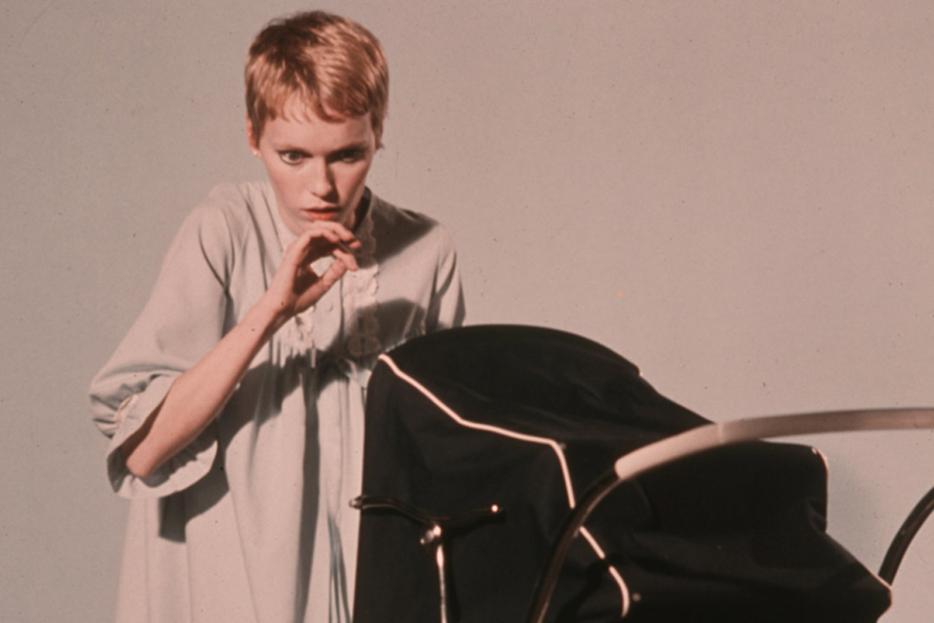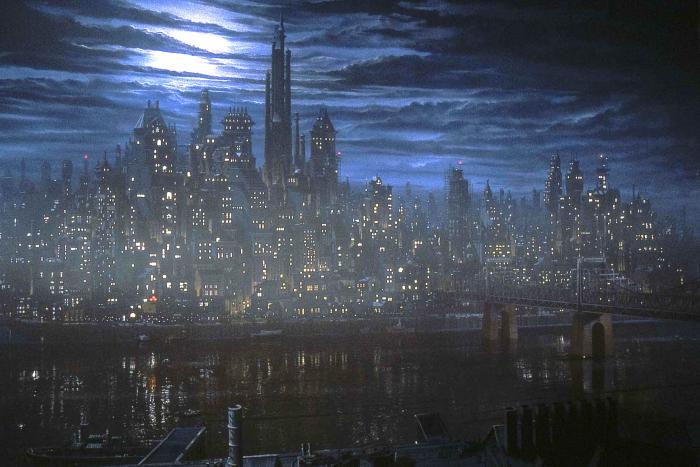Hazel Hayes, the lead character in my novel The Blondes, is a pregnant woman in the middle of a larger drama. As I learned while writing the book, that is rare. When I started looking around for examples of active women with bumps, I found them mostly in films. Is this because literature is a man’s game and afraid to show pregnant women in a state other than just vulnerable? Are literature’s conceptions of pregnant women outdated? Here are seven bumps who do anything but put their feet up.
Trudy Kockenlocker in The Miracle at Morgan’s Creek
Directed by Preston Sturges (1944)
Made during the height of Preston Sturges’ creative and financial success, it was still a miracle that the film was released given the time, 1944, and the film’s plot of a small town girl getting knocked up by a soldier whose name she can’t remember. Sturges used the limitations of the Production Code to create his own code (a hangover from too much lemonade?) for a comedy about how our culture applies the label of saint or tramp to women at the slightest change in wind direction. While it all ends in marriage – as it was 1944 after all – The Miracle at Morgan’s Creek is still one of the few tributes to single mothers. Also, don’t believe the creative writing instructors: sometimes funny names for characters are funny.
Jo in A Taste of Honey
Directed by Tony Richardson, based on the play by Shelagh Delaney (1961)
I first watched this while writing The Blondes, and perhaps deepening my own relationship to the film, the lead actor, Rita Tushingham, looks more than a bit like I did in my youth. Based on a play, protagonist 17-year-old Jo lives in the slums of Salford, northeast England. She’s sulky, bitter, and outside of everything. Jo lives with her single mom who’s pushing her out of her life in favour of a new beau. “Jealous little cat,” her mother scolds her. “You don’t look 40. You look a sort of well-preserved 60,” Jo tells her mother later. Following a shore-leave-length romance with a seaman, Jo gets pregnant and screams, “I don’t want to be a mother. I don’t want to be a woman!” But the story follows its character up to the final month of her pregnancy. Morrissey was a fan of the play and a surprising number of his best lyrics – “I dreamt about you last night/ Fell out of bed twice” – are swiped from it.
Rosemary in Rosemary’s Baby
Directed by Roman Polanski (1968)
Nerve-wracked, shrill, concerned about rent, her pregnancy, and her menacing neighbours, if Rosemary were featured in a remake today she could easily be a Park Slope mommy (and no doubt the Satanists transformed into a co-op board). All this is to say that Rosemary’s Baby is one of the great New York films and one that could only make sense in this city, which is as contemporary as it is ancient.
Stacy Hamilton in Fast Times at Ridgemont High
Directed by Amy Heckerling (1982)
Sean Penn may have been on the VHS box as the stoner surfer Jeff Spicoli, but it’s Jennifer Jason Leigh who owns this movie. Her storyline of losing her virginity and then obtaining an abortion comes in the middle of a teen comedy – yet Fast Times showed these events as important but ordinary decisions in a young woman’s life. I saw this movie for the first time as a teenager myself, and I remember the dread I felt as I watched Leigh enter the pool house with actor Robert Romanus. “Condoms!” I practically shouted at the screen. But as a viewer, or a reader, I want a character who makes mistakes, and goes on with life. Without them, a story isn’t much.
Marge Gunderson in Fargo
Directed by the Coen Brothers (1996)
The blundering of men in schemes of money and plays for respect appears all the more savage, foolish, and sad when investigated by Marge Gunderson. She’s the conscience of the film: a combination of cheerful and unbudging, a coaxer of information, and a gentle but serious rule follower. When Marge admonishes Peter Stormare, “And it’s a beautiful day and for what? A little bit of money?” it’s as if he has been hunted down by his own mother.
Helena Ayala in Traffic
Directed by Steven Soderbergh (2000)
Who better to take over an international drug cartel than a seven-month pregnant Catherine Zeta-Jones? Zeta-Jones plays a rich San Diego housewife who discovers her husband is a major distributor of cocaine only after he is arrested. She may offer lemonade to the undercover DEA agents who are conducting surveillance on her house, but she’ll also ultimately order a hit on a key witness in order to sink her husband’s trial. Zeta-Jones had recently married Michael Douglas and her actual pregnancy was incorporated into her role.
Skyler White in Breaking Bad
Created by Vince Gilligan (2008–present)
Skyler is seriously pregnant – for two seasons – and has bigger concerns than which name to pick or how to decorate the nursery. Besides dealing with her husband Walt’s cancer, she finds he’s been cooking and dealing crystal meth, and becoming increasingly secretive and violent. I began watching this grisly series while eight months pregnant myself. Skyler struggles to be the “good mother,” but is also portrayed as sexual and imperfect. In one of my favourite scenes, displaying the series’ love of novelistic detail, Skyler sits alone in her car in a diner parking lot, lighting up a cigarette while the driver in the next car judgmentally stares her down.






